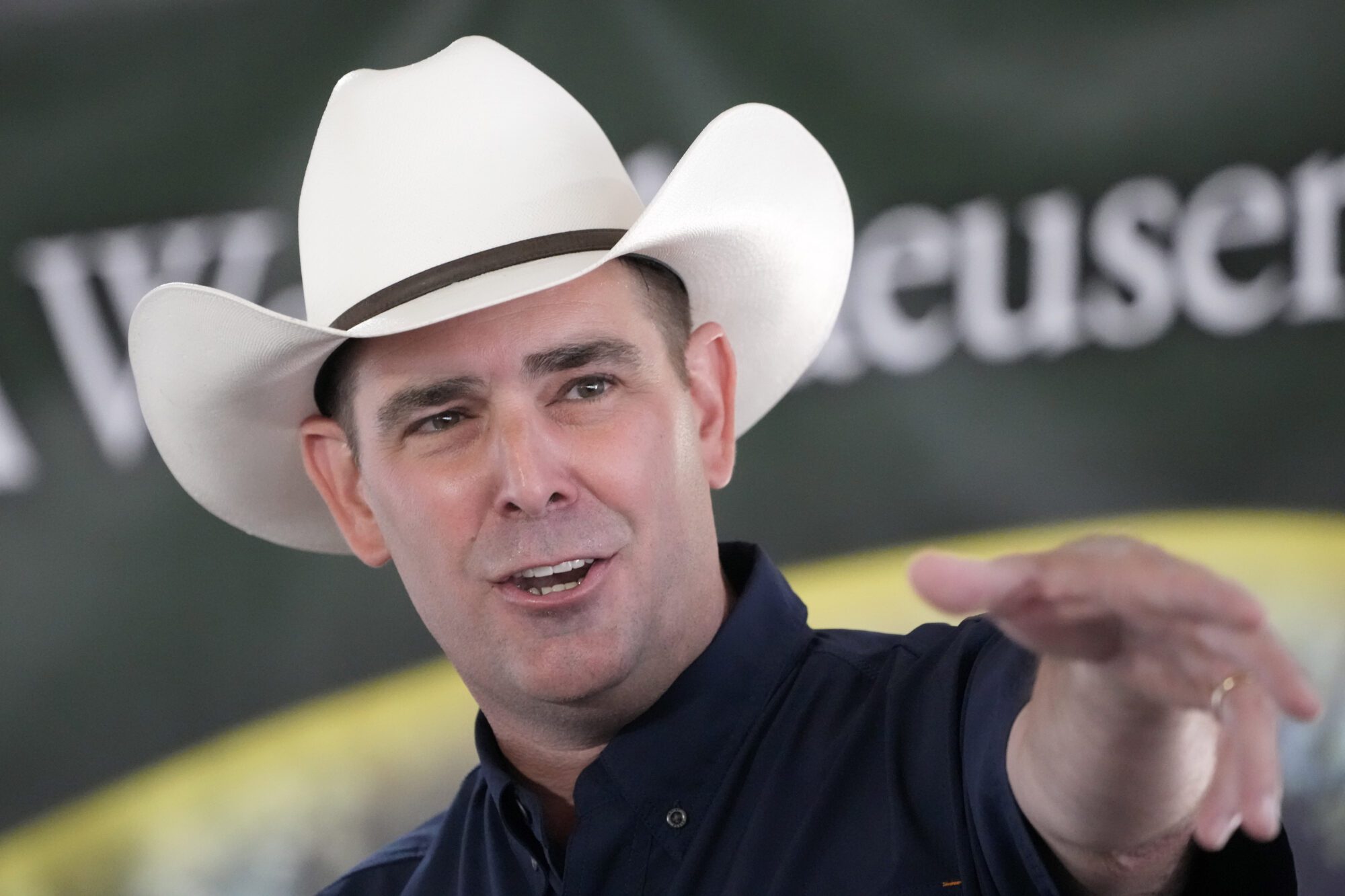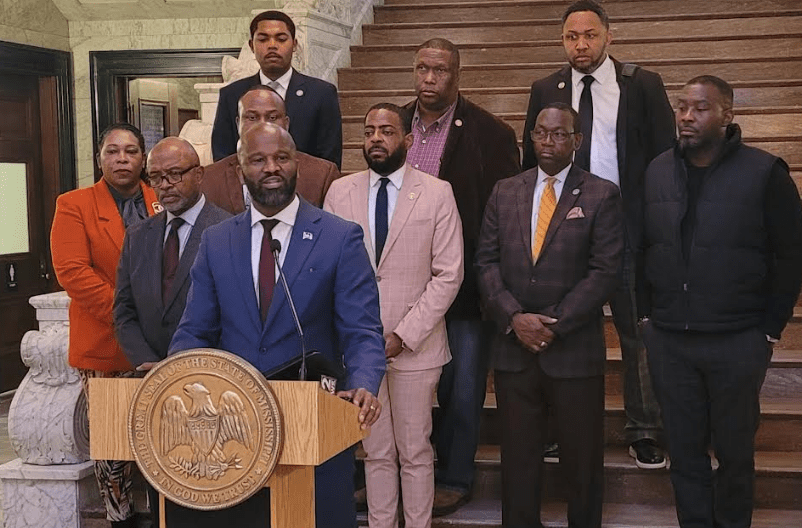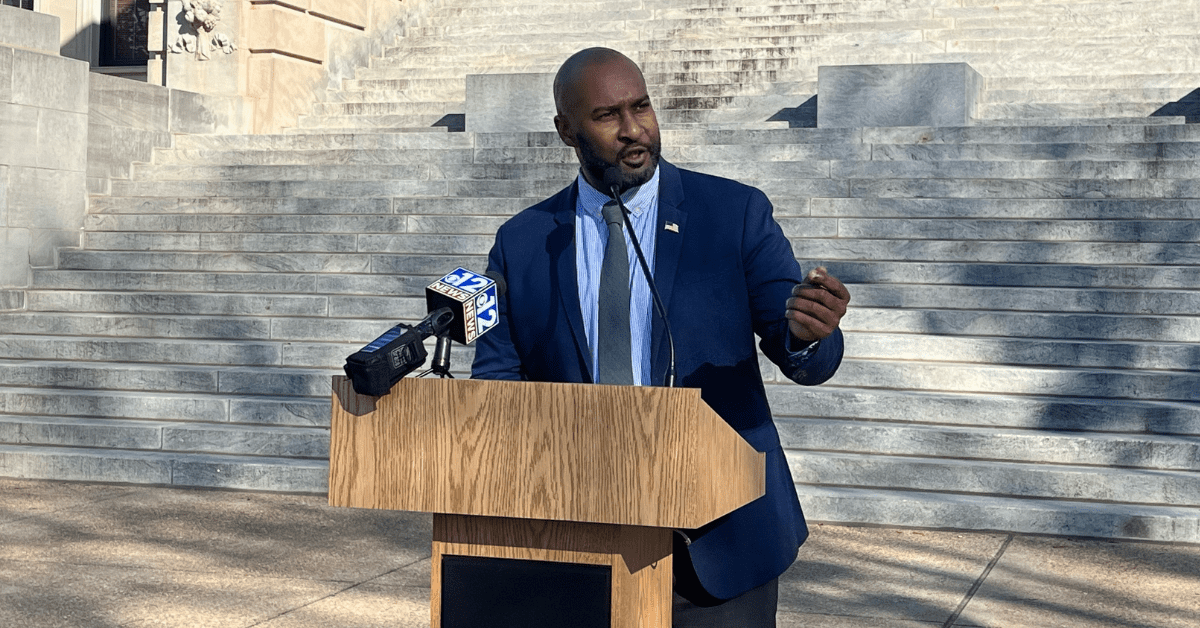
Top brass at Silicon Ranch, a solar company, gave Brandon Presley campaign contributions while on the PSC. Gov. Reeves says that’s illegal. Now Silicon Ranch is threatening legal action of their own.
A recent ad by Governor Tate Reeves campaign accused his Democrat opponent Brandon Presley of receiving illegal campaign contributions while serving as a public service commissioner.
While not explicitly naming the company, the ad featured graphics showing political donations received from executives at Silicon Ranch Corporation. Silicon Ranch has had business before the Public Service Commission (PSC) related to two solar farms built in Mississippi.
Attorneys for Silicon Ranch have now demanded the Reeves campaign remove the ad. The company claims the ad contains false and defamatory statements. (See ad and letter below).
Campaign Finance Crime
At issue is Mississippi law, Sec. 77-1-11, that makes it a crime for a public service commissioner to receive contributions from companies that come under the Public Service Commission’s “jurisdiction or supervision.” Included in the law is any “gas or electric utility company, or any other public utility.”
The law prevents campaign contributions made both directly and “indirectly.” It includes in its prohibition not only the companies, themselves, but contributions “from any person interested as owner, agent or representative” of a regulated company.
The current law’s restrictions were put in place after an FBI investigation in the late 1980s. Public Service Commissioners D.W. Snyder and Lynn Havens went to prison for bribery and extortion of regulated utilities as a result of the investigation.
Shortly after the law was passed, in 1992, another public service commissioner, Sidney Barnett, was arrested and pled guilty to multiple violations of 77-1-11 for receiving illegal contributions from utility companies.
A violation carries minimum penalties of $5,000 in fines, one year in prison, or both. Those penalties apply not only to the recipient of the contribution, but also to the individual donor.
Personal Contributions?
In the cease-and-desist letter, attorney Will Manuel does not deny that the contributions listed in Reeves’ ad were made to Presley by C-suite executives at Silicon Ranch. Rather, he offered two reasons he does not believe the contributions run afoul of Sec. 77-1-11.
First, he contends that the contributions listed were personal contributions and were not made in a representative capacity on behalf of Silicon Ranch.
A cynic might find it hard to believe that top brass at an out-of-state solar company, with business before the PSC, gave Presley money for some reason other than advancing the interest of their company.
However, even if taken for truth, Sec. 77-1-11 also prevents people with ownership interests in regulated companies from making contributions, whether they are purporting to represent the company or not with their donation.
Silicon Ranch is a privately held corporation. The individual donors identified in the ad as Silicon Ranch “employees” are all high-ranking executives.

Matthew Kisber is the co-founder, President and CEO of the company. Reagan Farr is the co-founder, Vice President and CFO. Matt Beasley is the Chief Marketing Officer. Phil Bredesen, the former Democratic governor of Tennessee’s, LinkedIn page list him as the Founding Chairman of Silicon Ranch.
These are typically roles that would involve some equity ownership in a privately held company. Were this dispute to advance, questions about these individuals ownership interest would likely become central.
A “Public Utility” or Not a “Public Utility”?
The second argument in the cease-and-desist letter centers on the idea that Silicon Ranch, itself, is not a regulated “public utility.” Basically, that Sec. 77-1-11 does not apply to it, or by extension, to its owners, agents, or representatives.
Sec. 77-3-3 of the Mississippi Code defines a public utility.
The term “public utility” includes persons and corporations, or their lessees, trustees and receivers now or hereafter owning or operating in this state equipment or facilities for:
The generation, manufacture, transmission or distribution of electricity to or for the public for compensation;
Silicon Ranch’s website shows two Mississippi-based solar projects, one in Meridian in conjunction with the Naval Air Station, and one in Hattiesburg, operated in partnership with Mississippi Power.
The website also explains how their solar farms generate and transmit electricity:
A “solar farm” is a collection of interconnected solar panels that are strategically placed to maximize their ability to capture sunlight and convert it to electricity. Sunlight contains little packets of energy called photons. When photons from the sun reach the solar panels, it causes energy electrons within those panels to move and in turn create an electrical current.
The electric current is then sent to an inverter which converts it from DC to AC. That power is then pushed out from the solar site onto the transmission lines where the electricity is then distributed to households and businesses.
WDAM reporting at the time of the ribbon cutting for the Hattiesburg solar farm noted that the project would generate 50 megawatts of electricity, “enough energy to supply power to approximately 6,500 homes.” It also explained that “Silicon Ranch funded the construction and will own and operate the facility for the long-term.”
Given publicly available information on what Silicon Ranch solar farms do –generate and transmit electricity for public use– and publicly reported information on Silicon Ranch’s construction, ownership, and operation of Mississippi-based equipment and facilities, it’s not hard to see how someone would conclude that it meets the legal definition of a public utility.
SR Cease and Desist by Russ Latino on Scribd
In the cease-and-desist letter, Manuel does not address the statutory definition of a public utility. Instead, he points to the fact that the Public Service Commission, itself, has ruled that Silicon Ranch is not a public utility.
The letter references the Final Order by the PSC, in August of 2017, granting permission for the construction of Silicon Ranch’s Meridian solar project.
In June of 2017, Mississippi Power and a Silicon Ranch subsidiary, SR Meridian III, LLC, petitioned the Public Service Commission for a “Certificate of Public Convenience and Necessity” to build the Meridian solar project.
In August of 2017, that permission was granted. One of the PSC’s finding was that Silicon Ranch was not a public utility:
Petitioner, Silicon Ranch, is not, and does not intend to become, a public utility under the laws of the State of Mississippi. Even though Petitioner, Silicon Ranch, is not a public utility, it is an ‘other person’ within the meaning of § 77-3-14.
Sec. 77-3-14 provides that “no public utility or other person shall begin the construction of any
facility for the generation and transmission of electricity” without the permission of the PSC.
The Order begs the question of when the PSC can simply declare that a company is not a public utility? The legal answer likely hinges on whether that company clearly meets the statutory definition of a public utility, or if there is some ambiguity that would give the agency deference in making a decision.
If established that Silicon Ranch does meet the statutory definition of a public utility, an agency’s order cannot simply supersede state law. The PSC could not, for instance, just declare that Entergy is not actually a utility company.
The stakes could be high if this gets pursued beyond a letter. If the donors listed in the ad do have an ownership interest in Silicon Ranch, and if it can be established that Silicon Ranch is a public utility under state statute, evidence of the commission of criminal violations of Sec. 77-1-11 could be on the table for both Presley and his donors.











